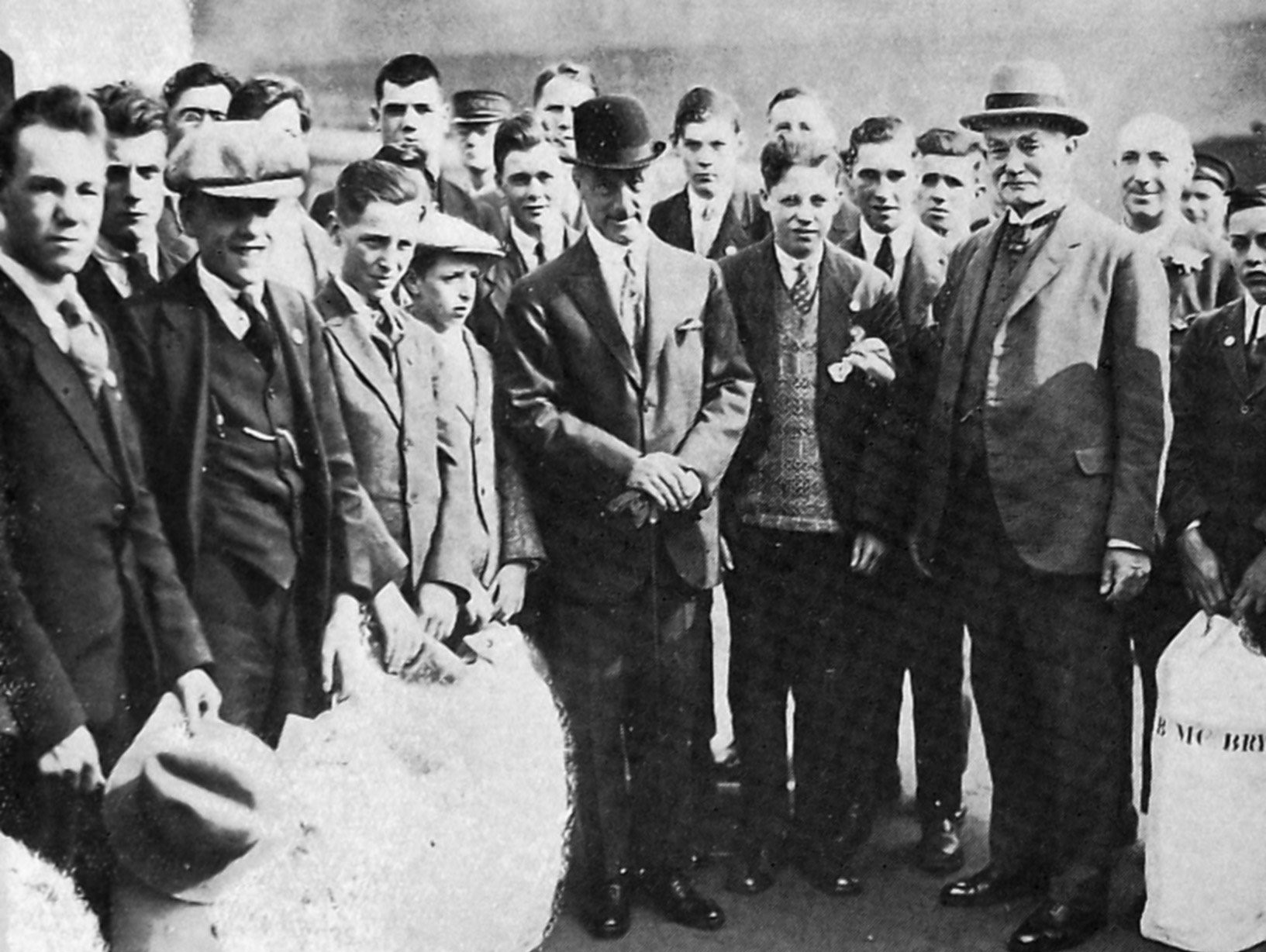

Edinburgh, Glasgow, and the Tyneside. Standing in a group on the platform with their new kits, Lord Jellicoe spoke to them, and gave them a little parting good advice. Before the train left he shook hands with each boy. During his remarks Lord Jellicoe told the boys not to forget that even in "that land of promise and sunshine everybody sometimes will have trouble, but it will not last long."
"So long as you have the spirit," he added, "what I call the New Zealand spirit — you will get on all right." He then referred to a letter which had recently been received by the mother of one of the boys now at Flock House. This young recruit spoke in enthusiastic terms of his new life. He said they all had to work hard, and it was well worth it. "We only want fit hands out here," he wrote.
"New Zealand does not want any duds. It is a jolly good country for all those who work. All such will get through their troubles well and will come out on top. I only wish I were going with you. You will find a lot of good people in New Zealand. You are the sons of fathers who did their duty bravely during the war, and if you show the same spirit as your fathers did, then you will get to the top of the tree, and some of you may be Prime Ministers before you finish. "
The boys naturally were delighted at being addressed by New Zealand’s late Governor, and they all boarded the train looking very happy and keen to make good. — by ODT London correspondent
Call to open up Fiordland
Wellington, August 28: The lack of facilities for visits to the West Coast Sounds was deplored in the Legislative Council this afternoon by Sir Thomas Mackenzie, who moved — "That in the opinion of the council, measures should be taken, while not involving the Government in financial loss, for the reopening to the public of the incomparable grandeur of the West Const fiords of Otago." The mover said he wished to draw attention to the interesting character of the western fiords, also to the historical interest attaching to them. He referred to the necessity for greater commercial development in the sealing industry, and said that so far as he knew, no tourist trips had been made to the Otago sounds since the wreck of the Waikare, and he thought the time had arrived when they should be re-instituted.
The seconder was the Hon G.M. Thomson, who spoke of the value of the Sounds as a resort for those who desired relief from the hustle of modern city life. The Government should look into the question of the renewal of the shipping service, which, he felt, would be justified by the traffic. A survey of Caswell Sound should be made with a view to ascertaining its water power possibilities.
The Hon W.H. Triggs said the scenery of the Western Fiords was not equalled by that of any other part of the world.
It was up to the Union Company, declared the Hon W. Earnshaw, to inaugurate a new steamer service to the Sounds. — ODT, 29.8.1925
Compiled by Peter Dowden











